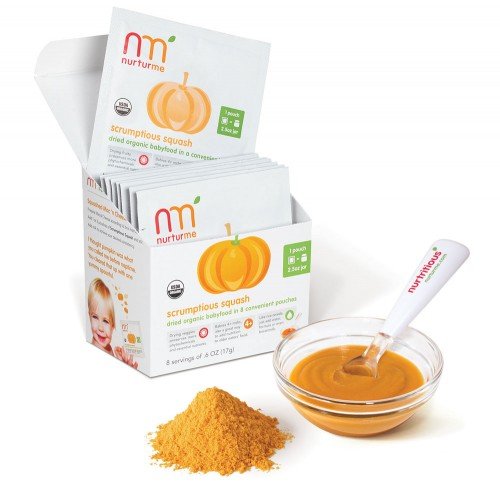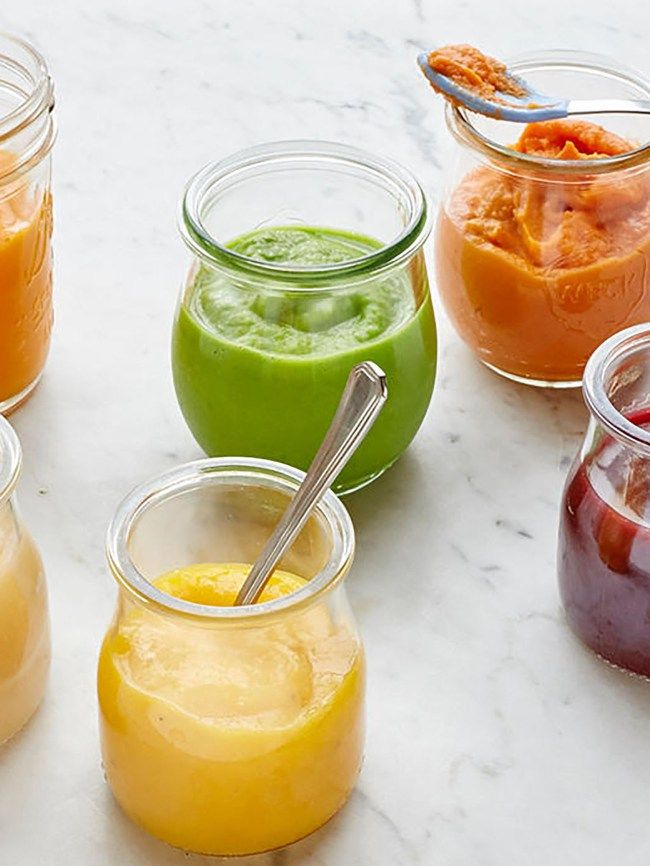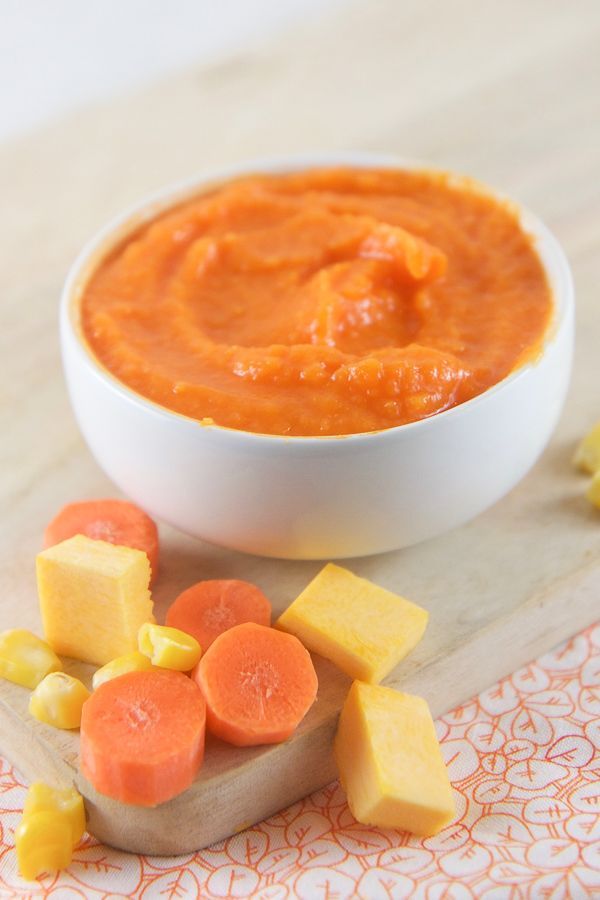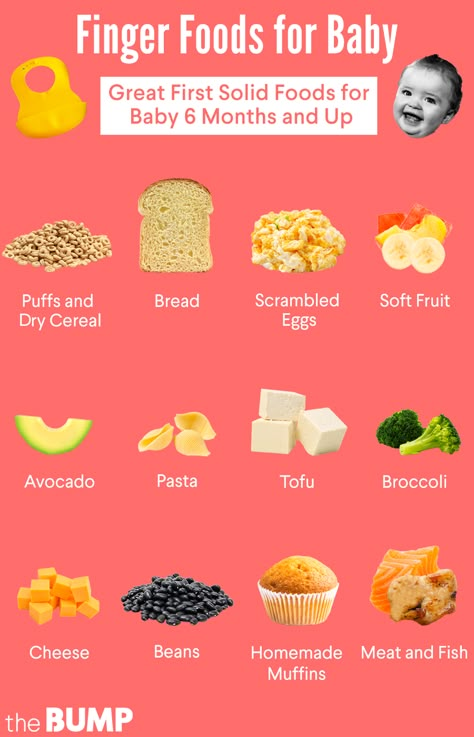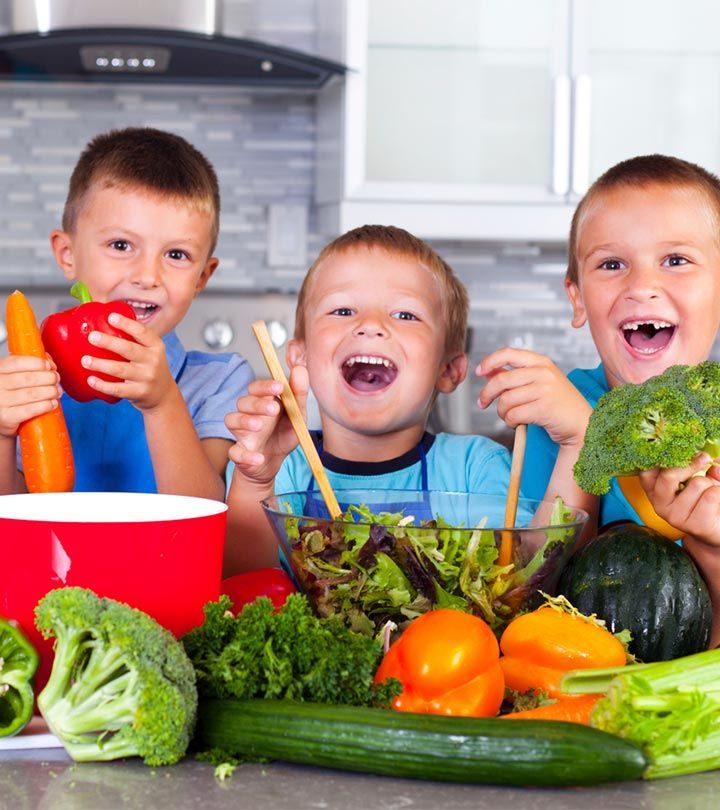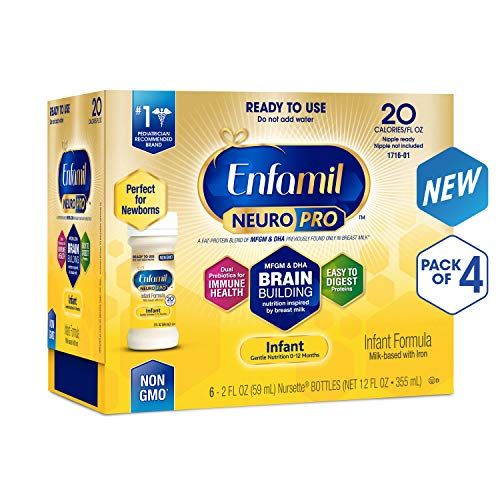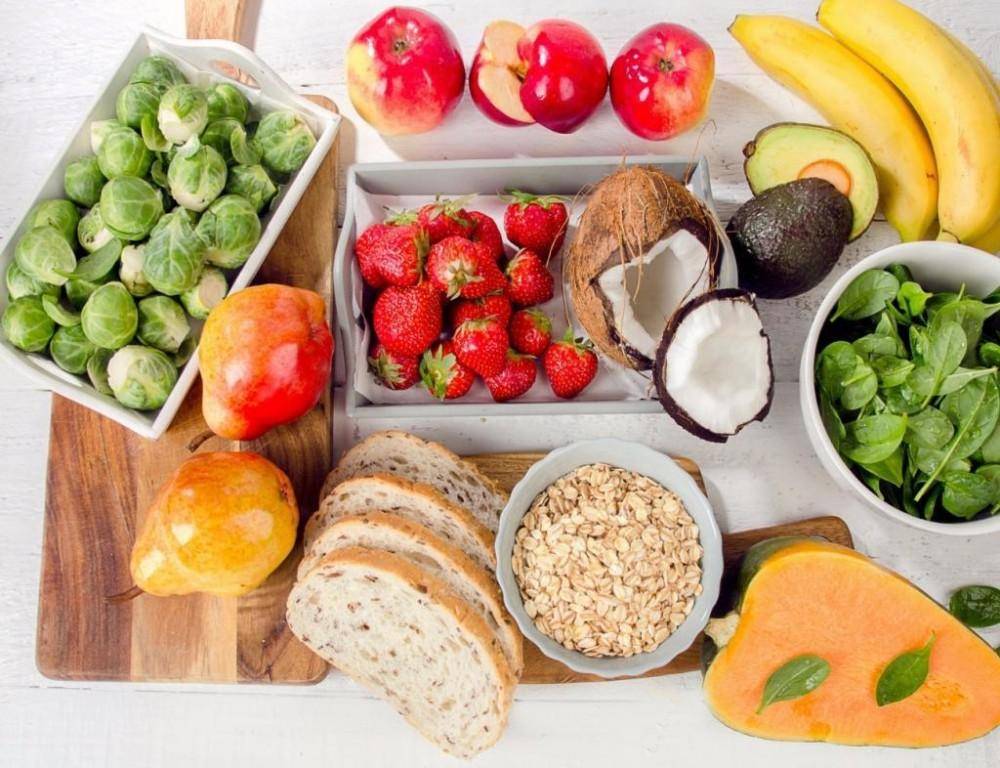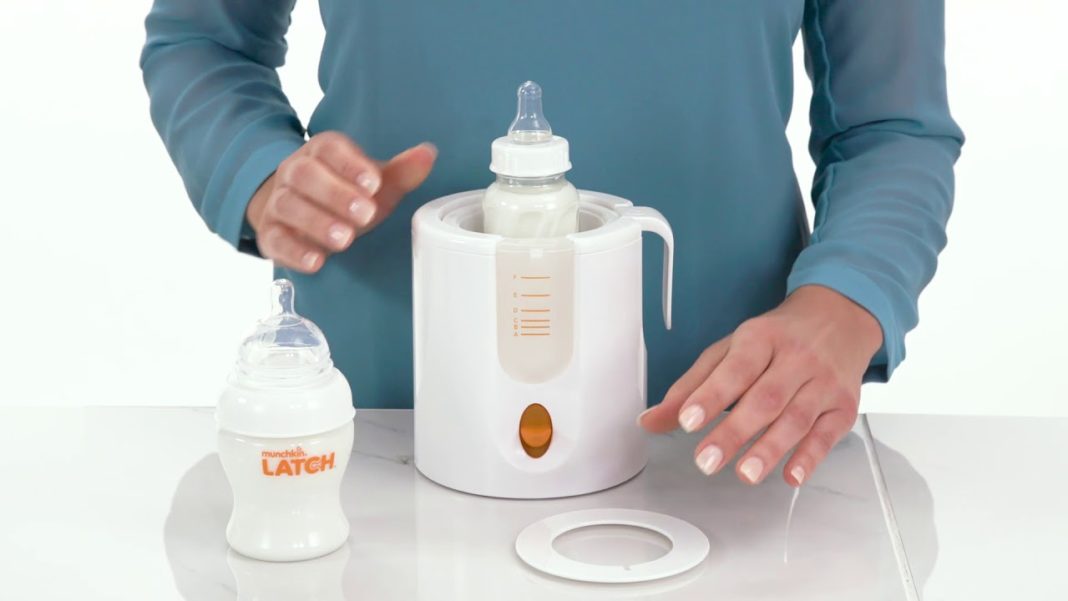Baby food 1st foods
When to Start Baby Food
Starting solids is an exciting and important milestone in baby’s development—one that not only opens them up to a brand-new world of flavors and textures, but also puts them on the right path to growing healthy and strong. Here’s what you need to know about how and when to start baby food for a smooth transition.
In this article:
When to start baby food
How to start baby on solids
Best first foods for baby
Introducing allergenic foods
When to Start Baby Food
Knowing when to start baby food is both crucial and tricky. Starting baby on solids too early means you might increase the risk of choking, obesity and bellyaches, but introducing solids too late means you might slow baby’s growth and encourage an aversion to solid foods, among other conditions. Fortunately, doctors have zeroed in on a sweet spot for starting baby food, which is sometime between 4 and 6 months of age—though, ideally, baby should be receiving their nutrition exclusively from breast milk until the six-month mark, according to the American Academy of Pediatrics (AAP). How to tell if it’s time for starting solids for your little one? Baby will give you clues, including:
• Baby can sit in a high chair comfortably on their own. This is a major sign in terms of when to start baby food, says Lauren Kupersmith, MD, a pediatrician at Hassenfeld Children’s Hospital at NYU Langone in New York City. It means baby can hold their head up and doesn’t need to be propped up to stay in the upright position, which is important to avoid choking.
• Baby looks interested at mealtime. Babies likes to mimic what we do, so if your child likes to sit up like a big kid and watch you eat, then by all means let them try eating too.
• Baby can move food to the back of their throat to swallow. But if baby tends to push the food out of their mouth—not because they don’t like it, but because they can’t seem to get the food to where it needs to go—hold off on starting solids.
How to Start Baby on Solids
At 4 to 6 months, most of baby’s nutrition will still come from breast milk or formula, so don’t worry if baby doesn’t like eating food right away.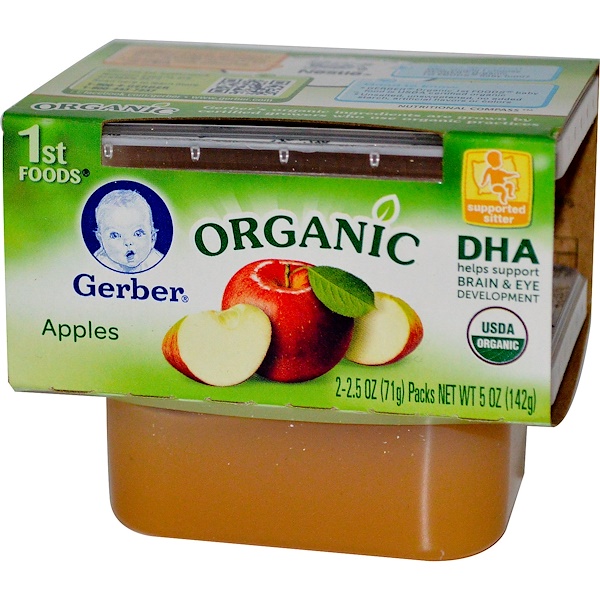 Introducing solids is a gradual process, and every baby learns in their own time. Here are some general guidelines for how to start baby on solids:
Introducing solids is a gradual process, and every baby learns in their own time. Here are some general guidelines for how to start baby on solids:
• Feed baby with a spoon. Letting your child go at it with their hands may seem tempting (and super-cute), but it’s best that they learn the right way from the get-go. (And even then, be prepared to clean up more than a few messes!) Also, never put cereal (or any other food) in baby’s bottle—it’s a choking hazard.
• Start slowly. When introducing solids, a half spoonful will do at first—you may even want to talk baby through it (“Yummy!”). To make it easier for baby to get accustomed to the idea of swallowing solids, start mealtime with a little breast milk or formula, then offer some food (again, no more than a half teaspoon at a time) and finish off with more breast milk or formula. If baby cries or turns away when you present the spoon, try again some other time. Start off with introducing solids at one meal a day, then slowly work your way up.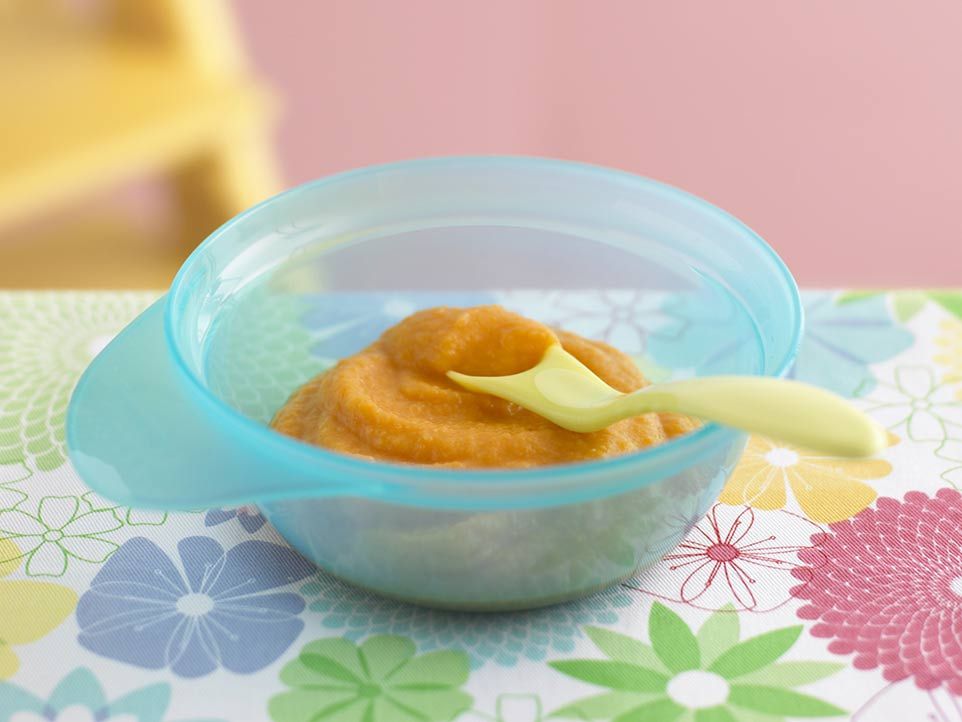 The morning is a good place to start, since baby is often hungriest at that time. When starting solids, baby typically won’t eat more than an ounce or two in one sitting.
The morning is a good place to start, since baby is often hungriest at that time. When starting solids, baby typically won’t eat more than an ounce or two in one sitting.
• Try new foods more than once. Since babies’ tastes will evolve, you may need to try a food 20 times before a baby actually likes it, says Kupersmith.
• Stick with the same food for three days before trying another one. This makes it easy to track whether baby is allergic to a particular food.
• Try foods in different forms. If baby doesn’t like pureed food, try it mashed. After all, baby is learning about new textures as well as new tastes. It may be a case of trial and error until you find a winner.
Best First Foods for Baby
Got baby safely strapped into the high chair and bib? You’re ready to finally start feeding baby solids! There aren’t any official food rules for babies starting solids, and there’s no scientific evidence suggesting you should introduce one type of food before another, assuming the foods aren’t choking hazards.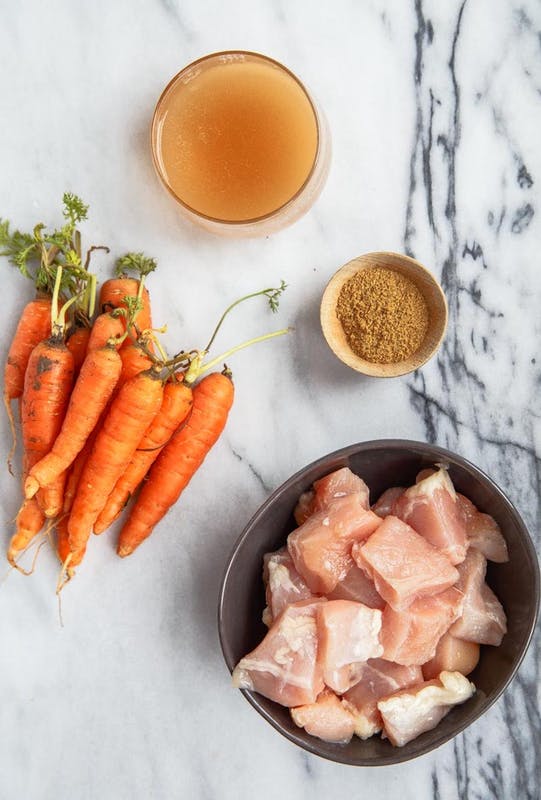 Nevertheless, baby cereal (such as oatmeal, rice and barley) is an “easy training food,” says Kupersmith, which is why it’s often recommended as baby’s first food; you can always mix it with more milk to build up to a thicker consistency. Many doctors also recommend starting vegetables before fruits, but there’s no evidence that this would make babies like vegetables more when they grow up—babies innately love sweets, and the order of introducing solids to baby doesn’t change that.
Nevertheless, baby cereal (such as oatmeal, rice and barley) is an “easy training food,” says Kupersmith, which is why it’s often recommended as baby’s first food; you can always mix it with more milk to build up to a thicker consistency. Many doctors also recommend starting vegetables before fruits, but there’s no evidence that this would make babies like vegetables more when they grow up—babies innately love sweets, and the order of introducing solids to baby doesn’t change that.
So why not simply start introducing solids with something you think baby will like? Here are a few common first foods for baby that are healthy and easy to eat (and, in the case sweet potato and banana, also easy to digest). Whatever you decide to feed baby, mash it with a fork or puree before serving whenever introducing solids.
- Baby cereal, such as oatmeal, rice, barley
- Sweet potato
- Banana
- Avocado
- Apples
- Pears
- Green beans
- Butternut squash
If your child has been breastfeeding, check with your pediatrician about getting a jump on pureed chicken or beef when you’re starting solids.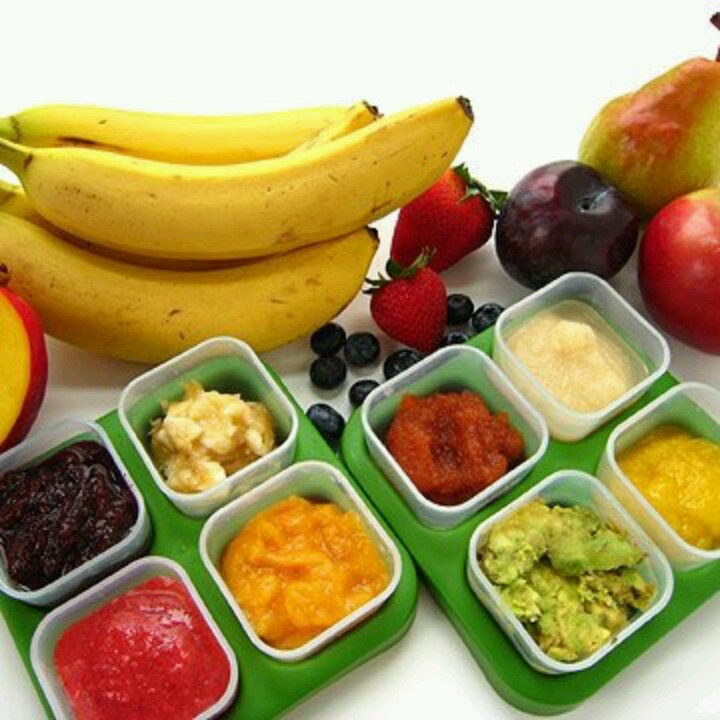 These foods contain easily absorbable forms of iron and zinc, which baby needs by 4 to 6 months, according to the AAP.
These foods contain easily absorbable forms of iron and zinc, which baby needs by 4 to 6 months, according to the AAP.
At around 9 months, baby should have already worked their way up to a variety of foods, including cereal, vegetables, fruits, meats, eggs and fish (see below regarding the last two). (Keep in mind, though, that baby will still get the majority of their nutrients from breast milk or formula until age one.) By now, baby will probably settle on three meals a day along with two snacks. Let them consume about 4 ounces of solids at each meal (equivalent to a small jar of strained baby food) and about half that amount for each snack.
Save honey and cow’s milk for after baby’s first birthday—there’s a risk for infant botulism with honey (a type of bacterial poisoning), and baby’s tummy isn’t prepared to digest large amounts of cow’s milk until they’re about one year old. Avoid adult processed foods and foods that are choking hazards (such as sticky foods, like large gobs of peanut butter; hard foods that are difficult to gum, like raw vegetables, nuts, seeds and popcorn; and round, slippery foods that haven’t been cut up, like grapes and cherry tomatoes).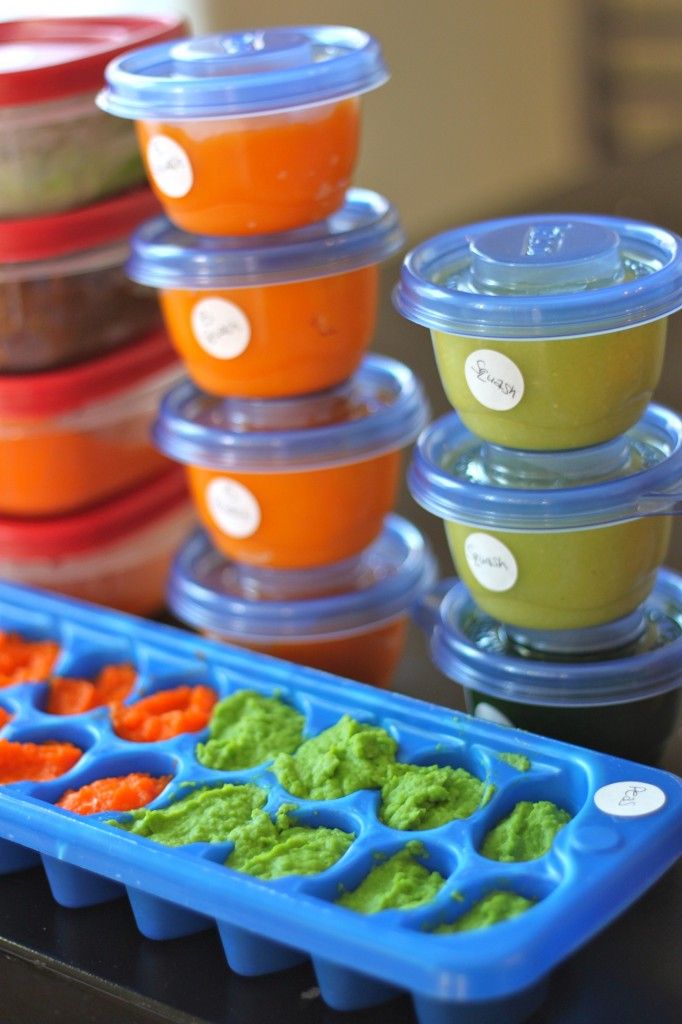 Instead, the first foods for baby, and those in the months that follow, should be soft and served mashed, pureed or (once baby seems ready to move up from the really mushy stuff) cut up into really little bits. “There’s pretty much free reign at that point,” Kupersmith says.
Instead, the first foods for baby, and those in the months that follow, should be soft and served mashed, pureed or (once baby seems ready to move up from the really mushy stuff) cut up into really little bits. “There’s pretty much free reign at that point,” Kupersmith says.
Introducing Solids Chart
Hesitant about improvising your first foods for baby? That’s okay too. If you prefer an “introducing solids chart” to help you plan out baby’s path, the guide below can come in handy.
Image: The Bump
Introducing Allergenic Foods
Much of the confusion around when to start baby food stems from questions concerning allergenic foods. These are foods that babies are most often allergic to. The major culprits include dairy, eggs, fish, peanuts and tree nuts. In the past, parents were advised to hold off on exposing baby to these foods, but now doctors recommend introducing them early, often and in age-appropriate format, which means starting off with purees and soft textures.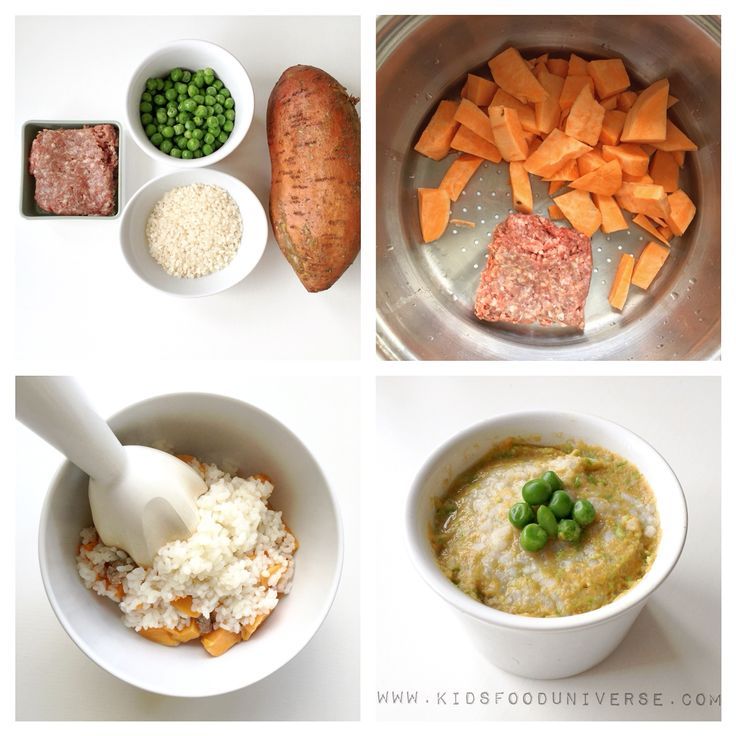
“Dairy is an easy starting point, given options such as yogurt and cheese,” says David Stukus, MD, director of the Food Allergy Treatment Center at Nationwide Children’s Hospital and a spokesperson for the American College of Allergy, Asthma, & Immunology. You can also try scrambled eggs in small amounts, although baby may not be too pleased with the texture at first.
As far as peanut products go, the National Institutes of Health issued new guidelines in 2017 that encourage parents of children at high risk for peanut allergies to incorporate them into baby’s diet at 4 to 6 months of age. Giving these babies peanut products before the age of one actually decreases their risk of developing a peanut allergy before age 5 by 81 percent, compared to kids who are introduced to peanuts later in life. Parents of kids without the food allergy risk can start peanut products whenever they’d like, as long as the nuts are in an age-appropriate form: Peanut butter can be thinned out with water or mixed into a fruit or vegetable puree, and peanut powder can also be mixed into cereal and fruits.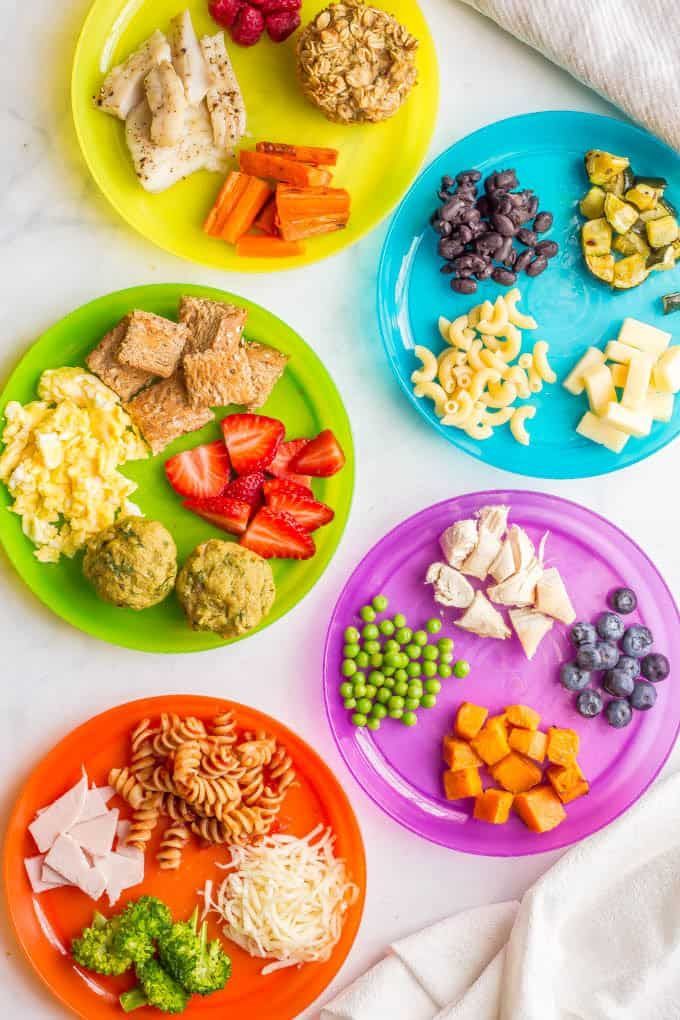 Don’t give whole peanuts or pieces of peanuts, since they’re a choking risk.
Don’t give whole peanuts or pieces of peanuts, since they’re a choking risk.
Allergic reactions to food are never just a fluke; they will happen with every exposure. Symptoms can range from mild (such as a rash or vomiting) to severe (such as trouble breathing). If baby has a food allergy, you’ll notice a reaction within minutes or up to two hours after eating the problematic food, Stukus says. If the symptoms are severe, call 911 right away. Otherwise, talk to your pediatrician; she can help confirm whether it’s an allergy or some other type of condition (such as a viral illness).
Expert bios:*
Lauren Kupersmith, MD, IBCLC, is a pediatrician and clinical instructor at Hassenfeld Children’s Hospital at NYU Langone in New York City, as well as a certified lactation consultant. She earned her medical degree from New York Medical College in 2005.
David Stukus, MD, is the director of the Food Allergy Treatment Center at Nationwide Children’s Hospital, an associate professor of pediatrics in the division of allergy and immunology and a spokesperson for the American College of Allergy, Asthma, & Immunology. He earned his medical degree from University of Pittsburgh School of Medicine in 2002.
He earned his medical degree from University of Pittsburgh School of Medicine in 2002.
Updated January 2020
Please note: The Bump and the materials and information it contains are not intended to, and do not constitute, medical or other health advice or diagnosis and should not be used as such. You should always consult with a qualified physician or health professional about your specific circumstances.
Dos and Don'ts for Baby's First Foods
Wavebreak Media/Thinkstock
Breastfeeding has been shown to improve infant, child and maternal health outcomes and help control healthcare costs, but how long should breastfeeding last and when should parents introduce solid foods?
The Dietary Guidelines for Americans recommend exclusive breastfeeding, meaning the infant receives only breast milk, during the first six months of life for optimal nutrition and health benefits.
Once solid foods are introduced, health professionals recommend continuing breastfeeding through 12 months of age and, after that, as desired by mother and baby.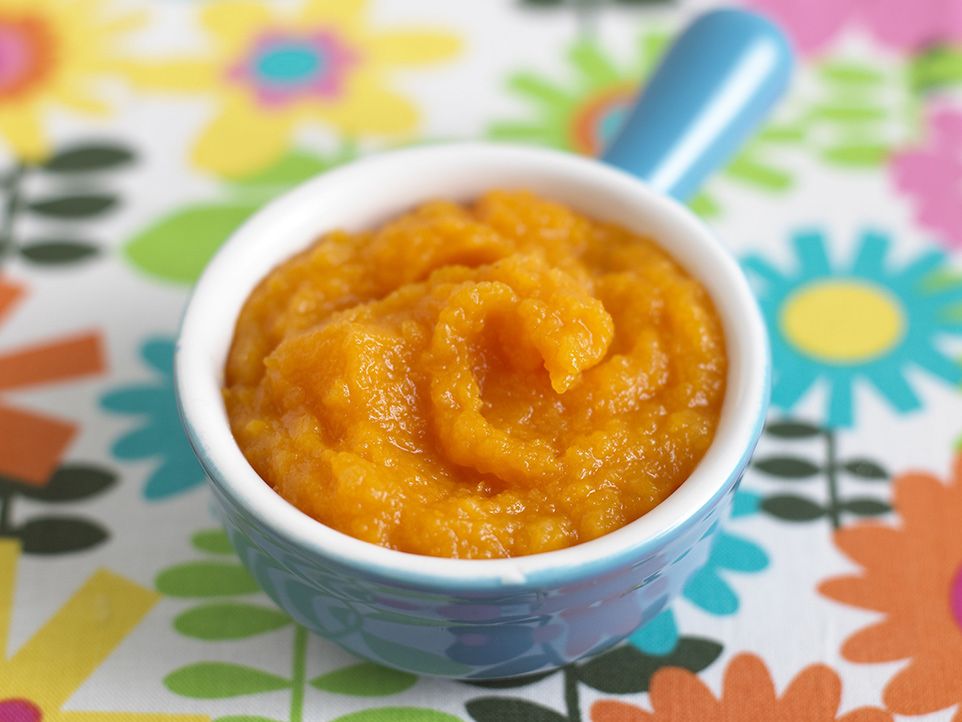 Introducing your baby to solid foods is an exciting milestone. When you start introducing children to the world of solid foods, you are helping them shape their relationship with food and establish a healthy eating style. The timing for introducing solid foods will depend on the infant, but it is not recommended before the age of four months or after the age of six months.
Introducing your baby to solid foods is an exciting milestone. When you start introducing children to the world of solid foods, you are helping them shape their relationship with food and establish a healthy eating style. The timing for introducing solid foods will depend on the infant, but it is not recommended before the age of four months or after the age of six months.
Not sure how to get your baby started on solid foods? Consider these helpful tips.
Is Your Baby Ready to Transition?
Each child's readiness for solid food depends on their own rate of development. Signs a baby may be ready to start solid foods include sitting up with minimal support, demonstrating good head control, bringing objects to the mouth or grasping at small objects. Check with your pediatrician before starting solid foods.
Getting Started With Solids
Solid foods may be introduced in any order. However, puréed meats, poultry, beans and iron-fortified cereals are recommended as first foods, especially if your baby has been primarily breastfed, since they provide key nutrients. Only one new single-ingredient food should be introduced at a time.
Only one new single-ingredient food should be introduced at a time.
Softer textures are very important when first introducing foods. Infants usually start with pureed or mashed foods around six months. As infants develop chewing and motor skills, they are able to handle items like soft pieces of fruit and finger foods. As the child ages, a variety of healthful foods is encouraged.
Weaning From Breastfeeding
When deciding if you should wean your baby to a bottle or a cup, consider their developmental readiness. Between 7 and 8 months, most infants will drink small amounts of liquid from a cup or a glass when someone else holds it. Older babies and toddlers often have the coordination to drink fluids from a cup by themselves.
If your baby is under 12 months of age and you are not continuing to breastfeed, wean from breast milk to iron-fortified infant formula. If your baby is 12 months or older, whole cow’s milk is appropriate.
Food Safety Do’s and Don’ts
Food safety concerns for infants and toddlers include food allergies, choking and risks for foodborne illness.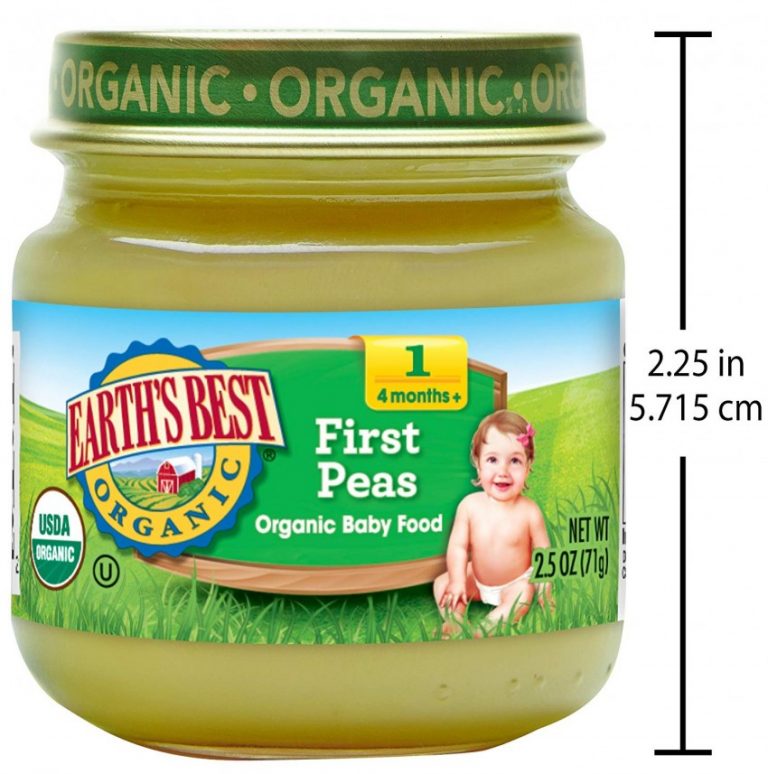 Keep the following safety tips in mind:
Keep the following safety tips in mind:
Do talk with your pediatrician about the risk of food allergies. Introducing one new food at a time, every several days, allows time to monitor for allergic reactions. Current evidence does not indicate needing to wait beyond 4 to 6 months before introducing potential allergy-causing foods such as eggs, dairy, soy, peanuts and fish. In fact, introducing peanut-containing foods as early as 4 to 6 months of age may help prevent a peanut allergy. The Dietary Guidelines for Americans recommends introducing potentially allergenic foods when other complementary foods are introduced to an infant’s diet. Parents with concerns about food allergies should discuss how to include these foods with their pediatrician.
Don’t feed your baby solid foods from a bottle. It can be a choking hazard and despite a popular misconception, putting cereal in a baby's bottle won't help with sleeping through the night. Other foods that are considered to be choking hazards are listed below.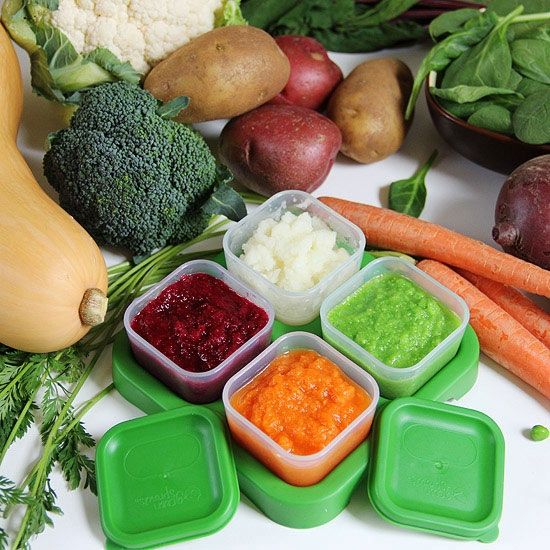
Do supervise your child while eating. Infants should be able to sit upright and face forward when you first introduce solid foods. This makes swallowing easier and choking less likely.
Don’t feed directly from the jar of food but instead spoon some food into a separate dish first. Feeding directly from the jar may introduce bacteria from your baby's mouth to the spoon and back into the food, creating a food safety issue.
Don’t feed honey to children under 12 months of age due to the risk of foodborne illness.
Examples of appropriate solid foods listed by age:
6 months:
- Well-cooked and pureed meat, poultry or beans
- Ground, cooked, single-grain cereal or infant cereal with breast milk or formula
- Cooked and pureed vegetables
- Mashed banana or avocado
9 months:
- Well-cooked, minced or finely chopped meat, poultry or beans
- A variety of cooked vegetables cut into small, ½ inch pieces, such as squash and green beans
- Sliced and quartered bananas or small pieces of other soft fruits
12 months:
- Soft, shredded meat, poultry or fish
- Small pieces of cooked vegetables
- Small pieces of soft, easy to chew fruits
- Mixed food dishes the family is eating in appropriately sized pieces
Not recommended for those under 4 years of age due to the risk of choking:
- Popcorn and whole kernel corn
- Nuts and seeds
- Large chunks of meat, poultry and cheese
- Candy, gum drops and jelly beans
- Hard, raw fruits or vegetables such as apples, celery and carrots
- Whole grapes and cherry tomatoes, unless cut into quarters
- Hot dogs, unless cut into strips and age appropriate, bite-size pieces
- Sticky foods, such as peanut butter, which can get stuck in the back of the mouth – peanut butter is okay if spread thinly on bread
For toddlers and preschoolers, chop grapes, meat, poultry, hot dogs and raw vegetables and fruits into small pieces (about ½ inch or smaller).
Nurturing Healthy Relationships with Food
Establishing a positive feeding relationship during infancy can have lifetime benefits. Keep in mind that children are responsible for how much and whether they eat so always wait for your baby to pay attention to each spoonful before you feed them. Don't be afraid to let your baby touch the food in the dish and on the spoon. You wouldn't want to eat something if you didn't know anything about it, would you? In addition, know the cues that your baby is done eating. A common cue babies are full is head turning.
Whatever happens, don't get discouraged and enjoy the experience. With a little patience and creativity, you can make your baby's first solid food eating experience fun for everyone involved!
Baby food, hygiene and development with free home delivery from VkusVill
Hide categories Show categories
Filters
All filters
Clear filters
Reset all
Found
Filters
Default
- Default
- Price Ascending
- Price descending
1
Supermarket
New Year's advent calendar "TV"
1 piece
260 rub 260.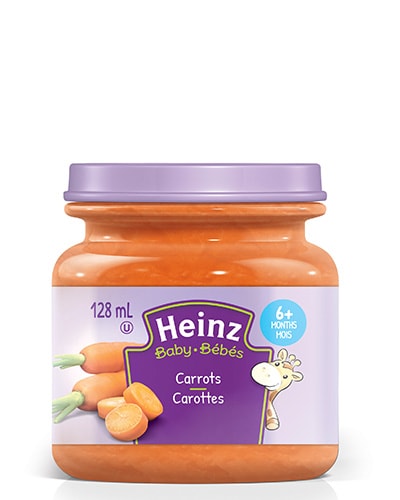 00 260.00
00 260.00
New
2
Supermarket
Magnetic alphabet with tasks
870 rub 870.00 870.00
3
Supermarket
Magnetic alphabet, 33 letters0003
245 rub 245.00 245.00
New
4
For children 1+
Sketchbook "Vkusvill"
200 g
RUB 85 85.00 85.00
5
Aerosol against ticks and mosquitoes
100 ml
365 rub.0003
7
Balm-conditioner for baby clothes_RP
900 g
190 rub 190.00 190.00
925 g25 g000310
Fruit and nut bar “Strawberry” for children
25 g
55 rub 55.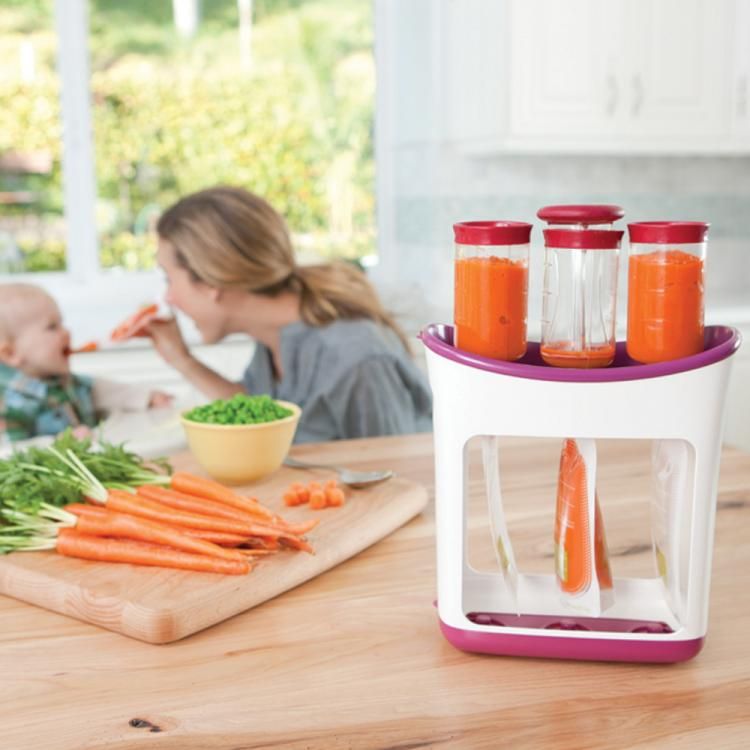 00 55.00
00 55.00
11
Mandarin fruit and nut bar for children
25 g
55 rub 55.00 55.00
12
Apple-banana fruit and nut bar for children
25 g
55 rub 55.00 55.00
13
Affordable price
Drinking bioyoghurt for children with strawberries 2.5%
210 g
48 rub 48.00 48.00
14
Children's drinking bioyogurt with peach 2.5%
210 g
RUB 48 48.00 48.00
15
Children's bioyoghurt with cherries 2.5% 9210 g0003
210 g
RUB 47 47.00 47.00
17
Biolact for children without add.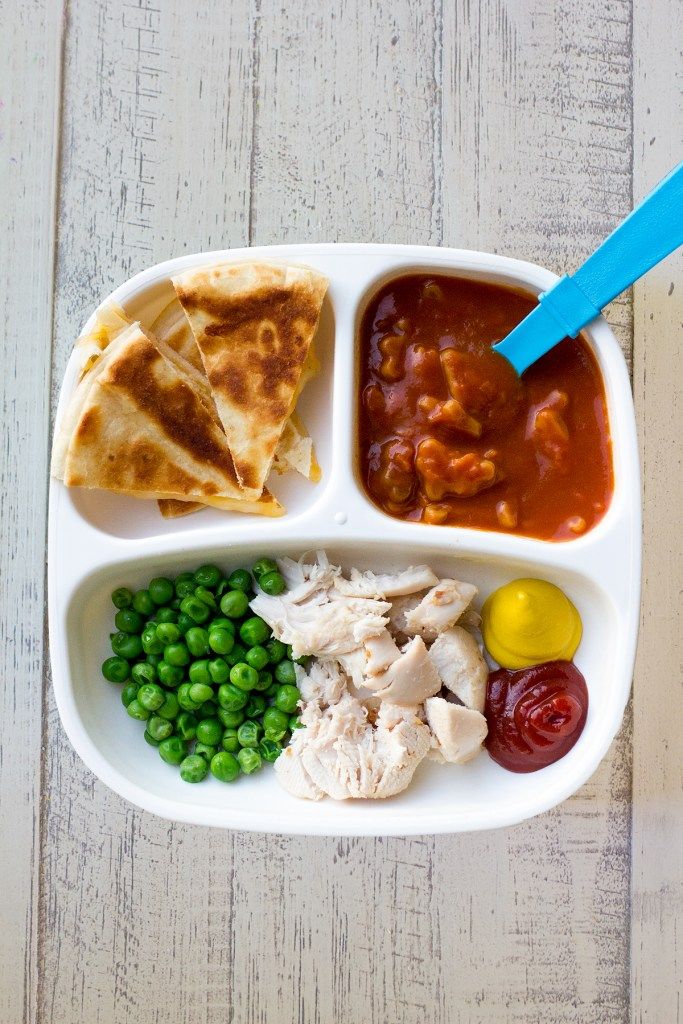 sugar 3.2%
sugar 3.2%
210 g
43 rubles 43.00 43.00
18
Biolact for children with raspberries 2.5%
210 g
45 rubles 45.00 45.00
19
Biolact for children with apple 2.5%
210 g
45 rub 45.00 45.00
20
Affordable price
Biocurd for children 5%, 50 g
50 g
22 rub 22.00 22.00
21
Biocurd for children with cherries 4.2%
100 g
42 rubles 42.00 42.00
22
Biological cottage cheese for children with raspberries 4.2%
100 g
42 rubles 42.00 42.00
23
Rabbit meatballs with celery and potato puree
190 g0003
46 rubles 46.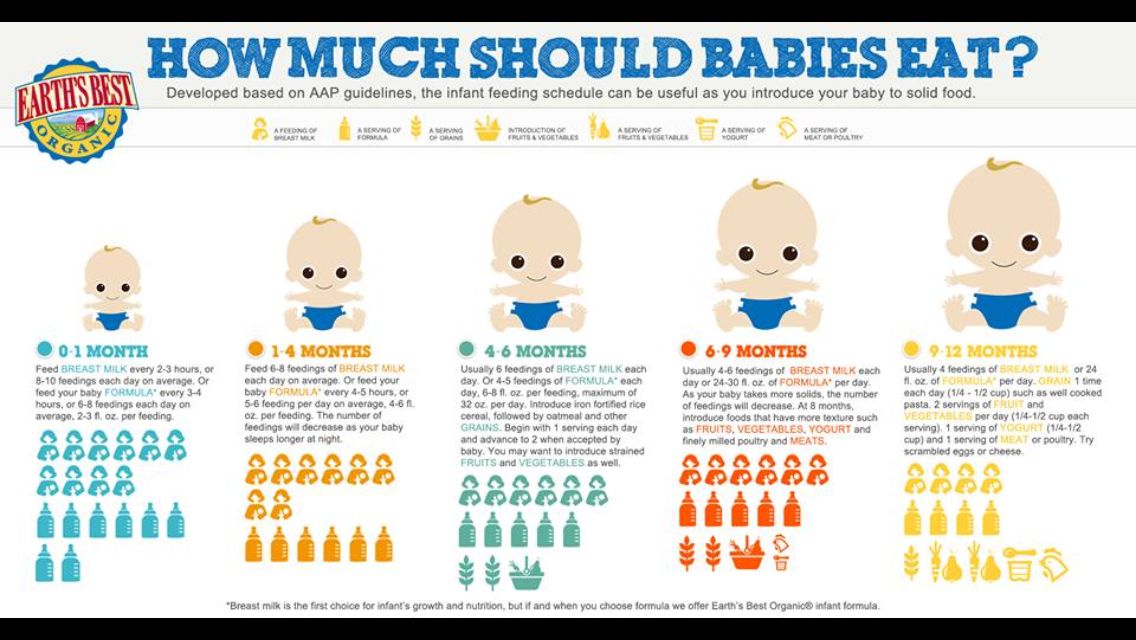 00 46.00
00 46.00
Catalog
Search
Catalog / Children food
Sort by:
Food additives
Cereals, flakes, cereals
Pasta
Dairy products
Drinks
Cookies, dryers, bars, marmalade
Puree
Formulas and milk replacers
Nan Optipro 3 milk drink 800 gr.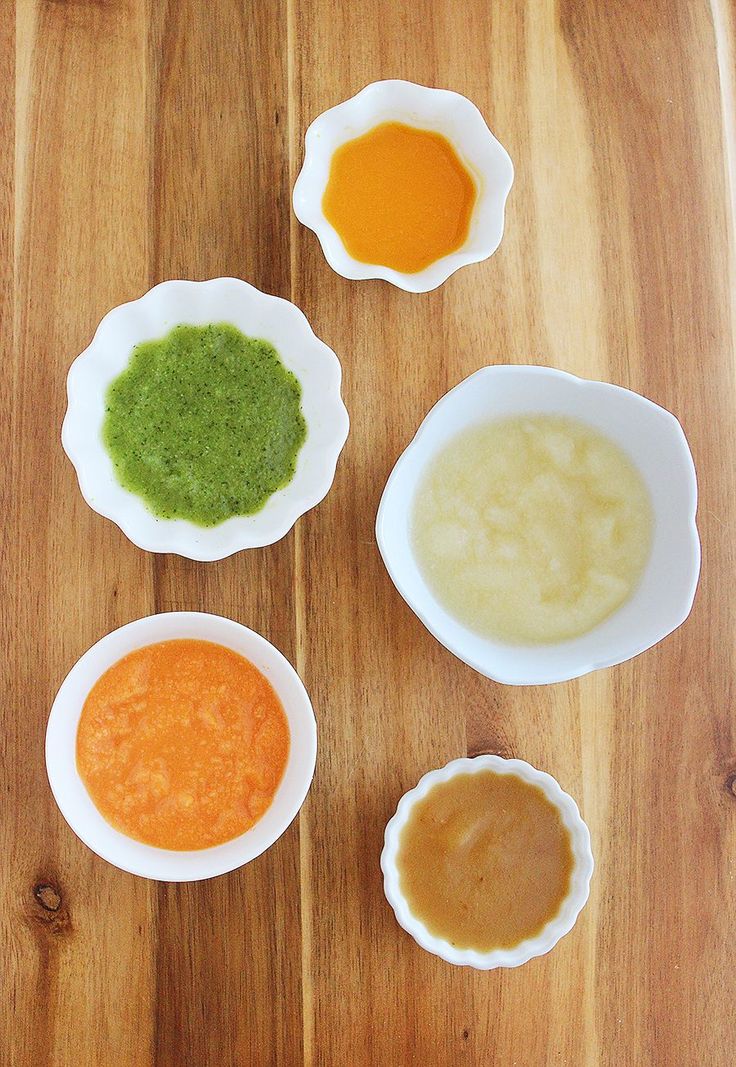
17
1,777.861 244.50 Р
– 30% Bestseller
Nan Optipro 4 milk drink 400 gr.
10
776.28698.65 R
– 10% Bestseller
Similac anti-reflux milk formula 375 gr.
5
1002.24851.90 R
- 15% Bestseller
Bibikasha buckwheat with goat milk 200 gr.
16
733.75587.00 R
– 20% Bestseller
Bibikasha oatmeal with goat milk 200 gr.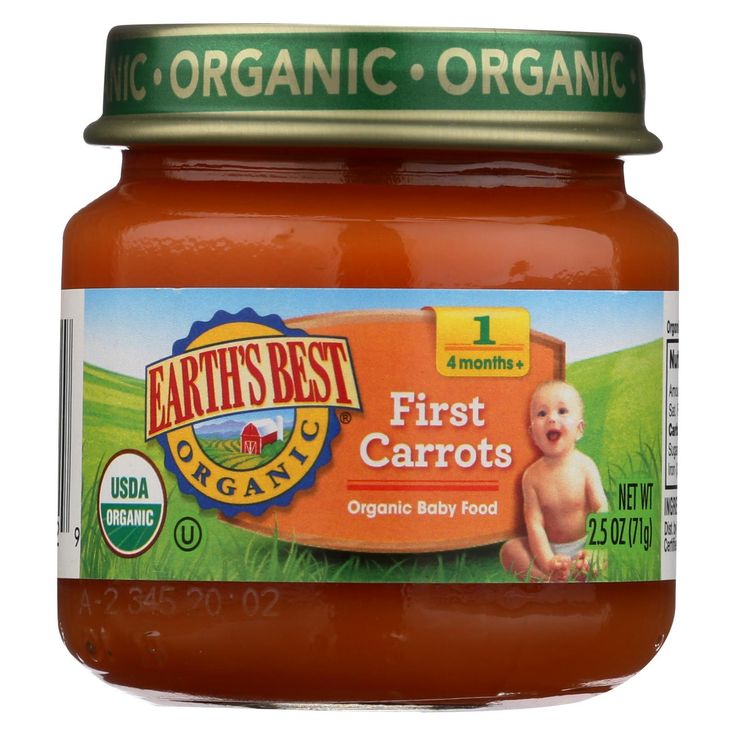
18
610.00488.00 Р
– 20% Bestseller
Nestle corn porridge without milk 200 gr.
24
120.22108.20 R
– 10% Bestseller
Nestle buckwheat porridge without milk 200 gr.
27
127.67114.90 Р
– 10% Bestseller
Nestle oatmeal porridge without milk 200 gr.
31
127.29108.20 R
– 15% Bestseller
Nestle multi-cereal porridge 5 cereals without milk 200 gr.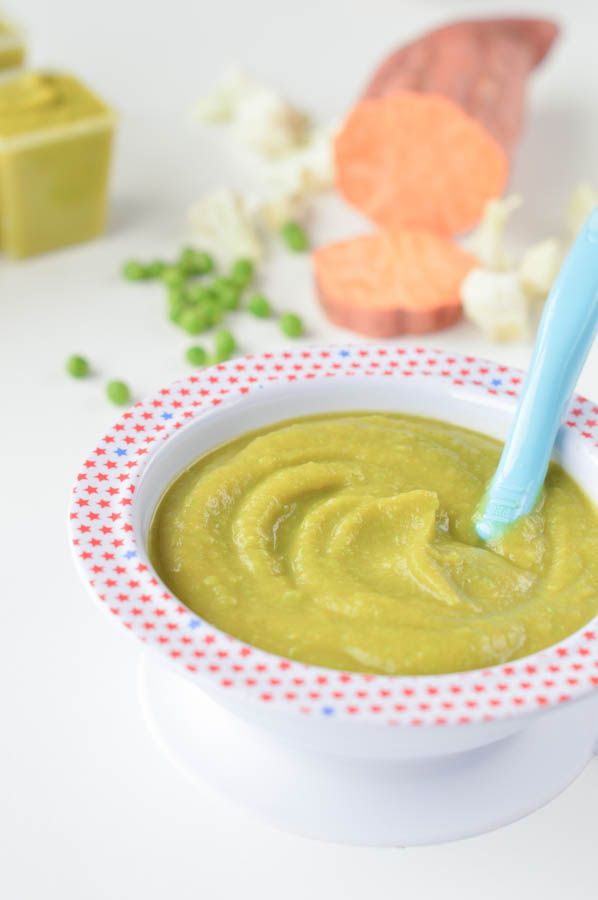
37
158.06142.25 Р
– 10% Bestseller
Mamako buckwheat porridge with goat milk 200 gr.
27
495.00396.00 R
– 20% Bestseller
Nan Optipro 4 milk drink 800 gr.
16
1 112.94946.00 R
- 15% Bestseller
Nan Optipro 3 milk drink 400 gr.
12
776.28698.65 R
– 10% Bestseller
Kabrita buckwheat porridge with apple and apricot in goat milk 180 gr.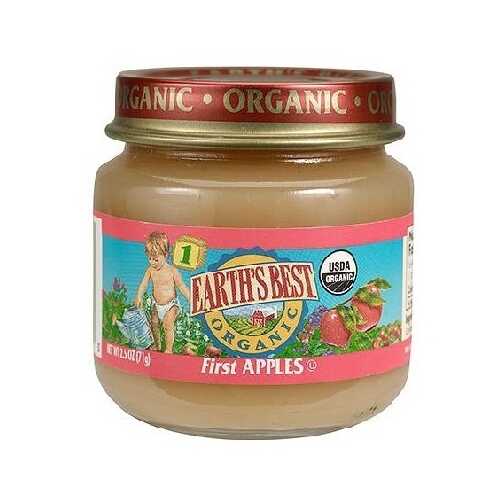
13
620.00496.00 Р
– 20% Bestseller
Similac Pediashur Maloezhka natural taste 200 ml.
22
171.11154.00 R
– 10% Bestseller
Kabrita porridge buckwheat with goat milk 180 gr.
4
668.57468.00 Р
– 30% Bestseller
Fleur Alpin children's mini wheat croutons 100 gr.
3
330.0099.00 R
– 70% Bestseller
Nestle buckwheat porridge with dried apricots milk 220 gr. pouch
pouch
29
154.89139.40 Р
– 10% Bestseller
Nestle multi-cereal porridge with apple, blueberry and raspberry milk 200 gr. pouch
19
146.56131.90 Р
– 10% Bestseller
Nestle milk oatmeal porridge with apple 200 gr. pouch
24
146.56131.90 Р
– 10% Bestseller
Nestle multi-cereal with pear and peach dairy 200 gr. pouch
27
146.56131.90 Р
– 10% Bestseller
Nestle oatmeal porridge with banana and pear milk 200 gr.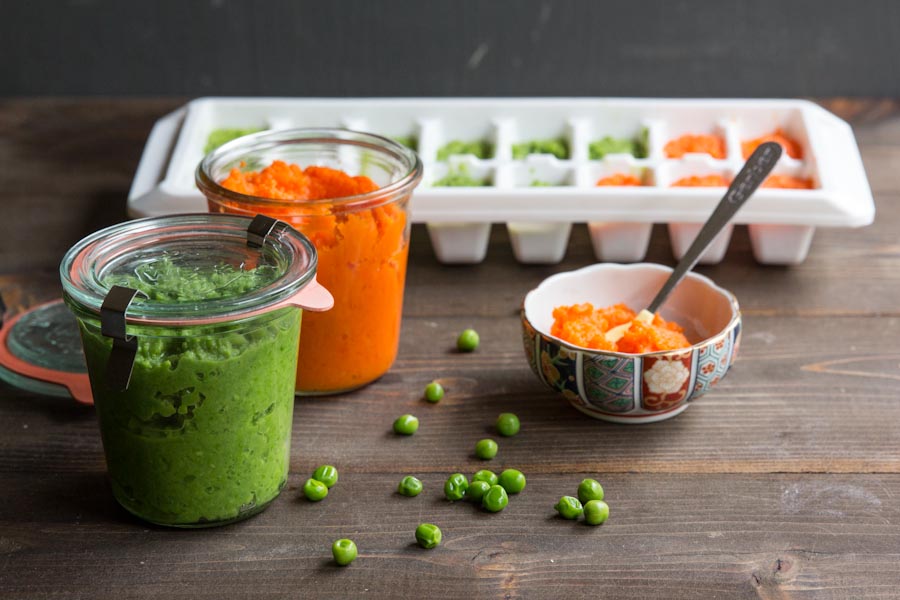 pouch
pouch
28
188.43131.90 Р
– 30% Bestseller
Nestle wheat porridge with milk pumpkin 200 gr. pouch
29
224.17201.75 Р
– 10% Bestseller
Nestozhen 3 milk drink 600 gr.
5
518.24440.50 R
- 15% Bestseller
Nestozhen 4 milk drink 300 gr.
11
416.25333.00 Р
– 20% Bestseller
Nestozhen 4 milk drink 600 gr.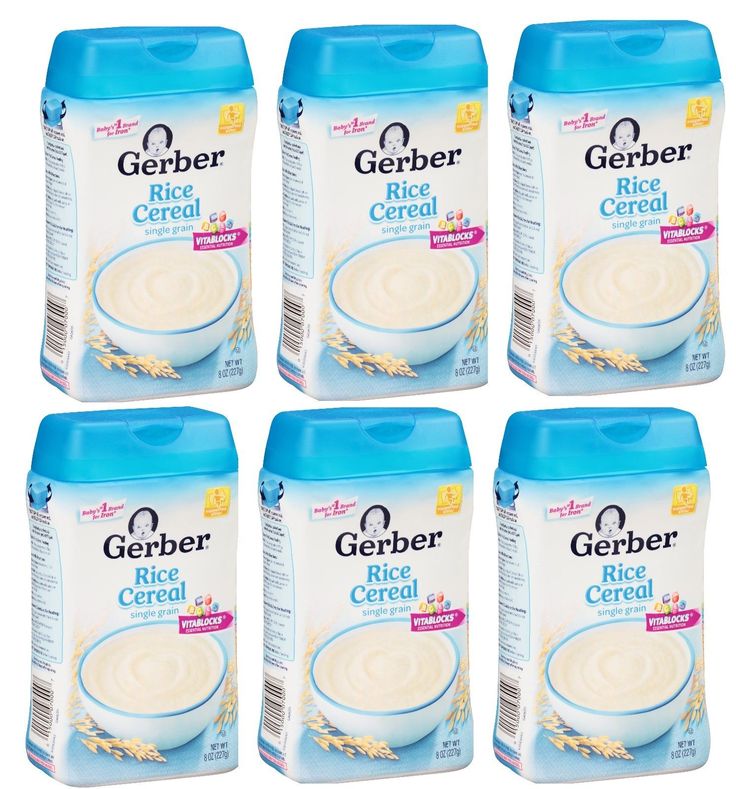
7
542.94461.50 R
- 15% Bestseller
Nan Optipro 4 milk drink 1050 gr.
5
1488.751 191.00 Р
– 20% Bestseller
Nan Optipro 3 milk drink 1050 gr.
4
1,559.381 247.50 Р
– 20% Bestseller
Nutrilon 1 comfort mix 900 gr.
9
2,287.651 944.50 P
- 15%
Gerber juice apple grapes and wild rose clarified 175 ml/12 pcs.
39
172.71146.80 P
- 15%
Nutrilon Pepti Gastro mix 450 gr.
11
2,191.761 863.00 R
- 15%
Gerber puree pumpkin 80 gr./6 pcs.
64
100.1190.10 P
- 10%
Gerber puree cauliflower 80 gr./6 pcs.
46
100.1190.10 P
- 10%
Nutrilon 2 comfort mix 400 gr.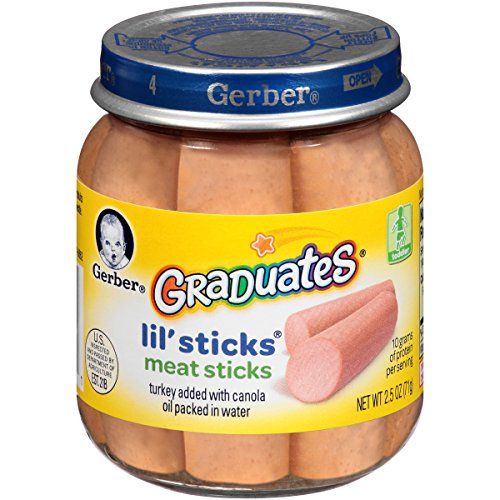
5
1 202.351 022.00 P
- 15%
Nutrilon Premium 1 milk formula 1200 gr.
15
1,686.471 433.50 P
- 15%
Baby multi-cereal porridge with apple, pear and milk plum 220 gr.
4
175.94158.35 P
- 10%
Gerber apple puree 80 gr./6 pcs.
57
100.1190.10 P
- 10%
Gerber prunes puree 80 gr.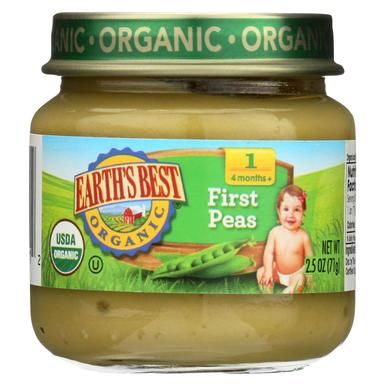 /6 pcs.
/6 pcs.
63
100.1190.10 R
- 10%
Malyutka corn milk porridge 220 gr.
8
175.94158.35 P
- 10%
Nestle Alfare Allergy mix 400 gr.
10
1,659.00 P
Baby 3 milk drink 1200 gr.
7
1,403.531 193.00 P
- 15%
Nutrilon 2 hypoallergenic mixture 400 gr.
2
1 312.351 115.50 P
- 15%
Baby 1 milk mixture 1200 gr.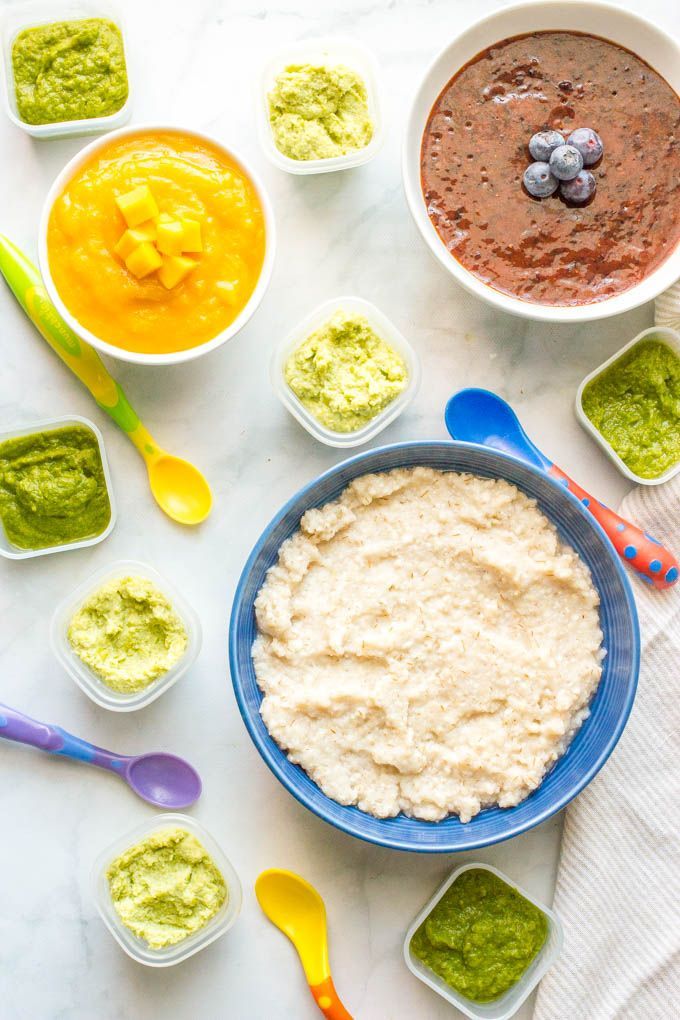
17
1 209.441 088.50 P
- 10%
Nutrilon Premium 3 milk drink 800 gr.
1
1 550.591 318.00 P
- 15%
Nan Optipro 1 milk mixture 800 gr.
30
878.00 R
Baby porridge buckwheat milk 225 gr.
16
176.00158.40 P
- 10%
Nan PRE milk formula for small and premature babies 400 gr.
15
1,340.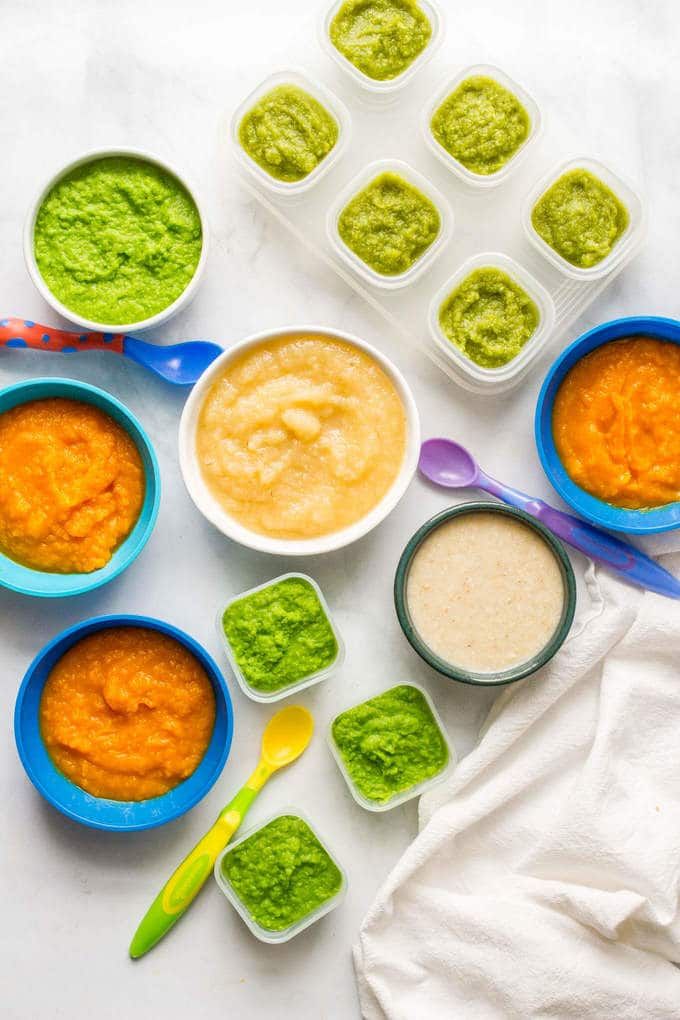 00 P
00 P
Nutrilon lactose-free mixture 400 gr.
28
1,455.291 237.00 P
- 15%
Nutrilon Premium 2 milk formula 1200 gr.
17
1,727.061 468.00 P
- 15%
Gerber juice apple and pear clarified 175 ml/12 pcs.
26
172.71146.80 P
- 15%
Nutrilon Premium 3 milk drink 400 gr.
2
921.18783.00 P
- 15%
Baby wheat porridge with milk pumpkin 220 gr.
25
175.94158.35 P
- 10%
Gerber puree pear 80 gr./6 pcs.
71
100.1190.10 P
- 10%
Nan Expert Pro 3 fermented milk mixture 400 gr.
7
722.35614.00 R
- 15%
Nutrilon Pepti Allergy mix 400 gr.
13
2,052.941 745.00 P
- 15%
Nutrilon anti-reflux milk formula 400 gr.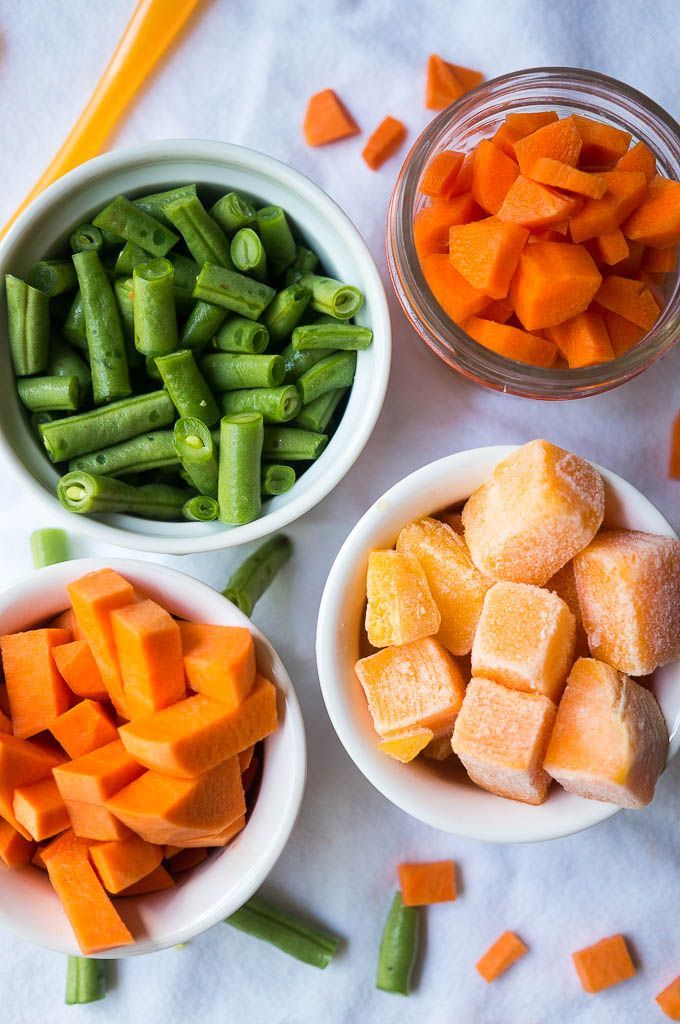
2
1,467.061 247.00 P
- 15%
Baby 2 milk mixture 600 gr.
10
682.35580.00 P
- 15%
Nutrilon Premium 4 milk drink 800 gr.
5
1,464.441 318.00 P
- 10%
Gerber bar with apple and grapes 25 gr.
92
71.7557.40 P
- 20%
Nan Optipro 2 milk mixture 400 gr.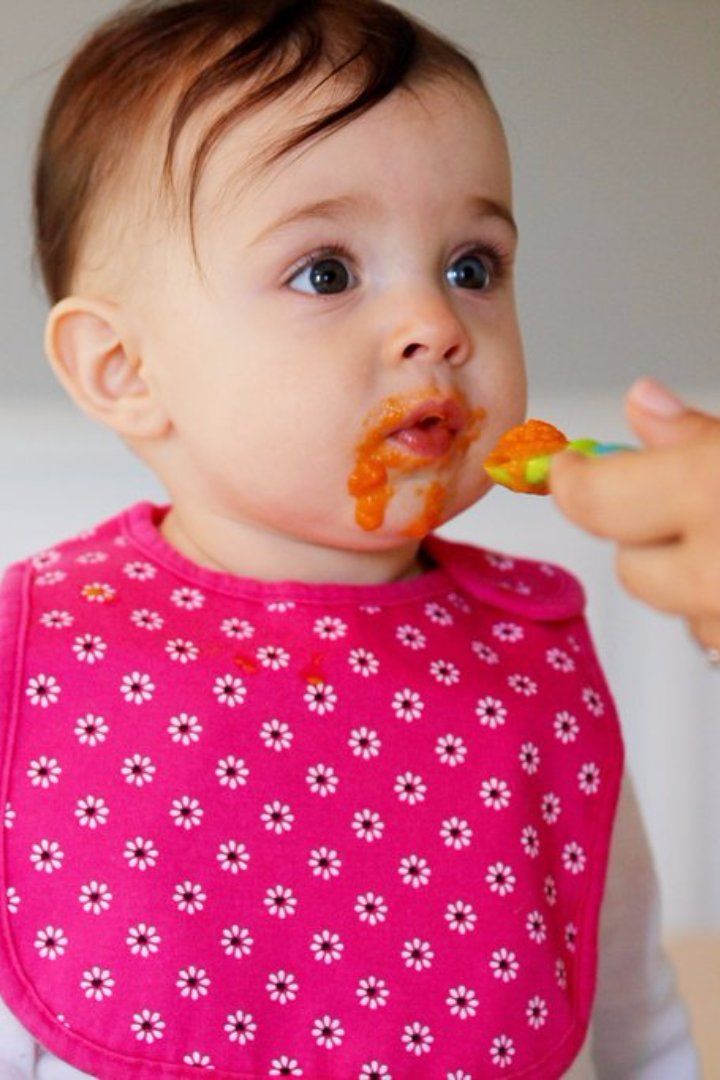
20
629.70 P
Nan Optipro 2 milk formula 800 gr.
28
903.50 P
Nutrilon Premium 4 milk drink 400 gr.
3
920.59782.50 P
- 15%
Nestle Alfare Amino mix 400 gr.
13
3,675.00 P
Nestle Alfare mix 400 gr.
10
1,794.00 P
Nutrilon 1 hypoallergenic mixture 800 gr.
5
2,095.561 886.00 P
- 10%
Nutrilon 2 hypoallergenic mixture 800 gr.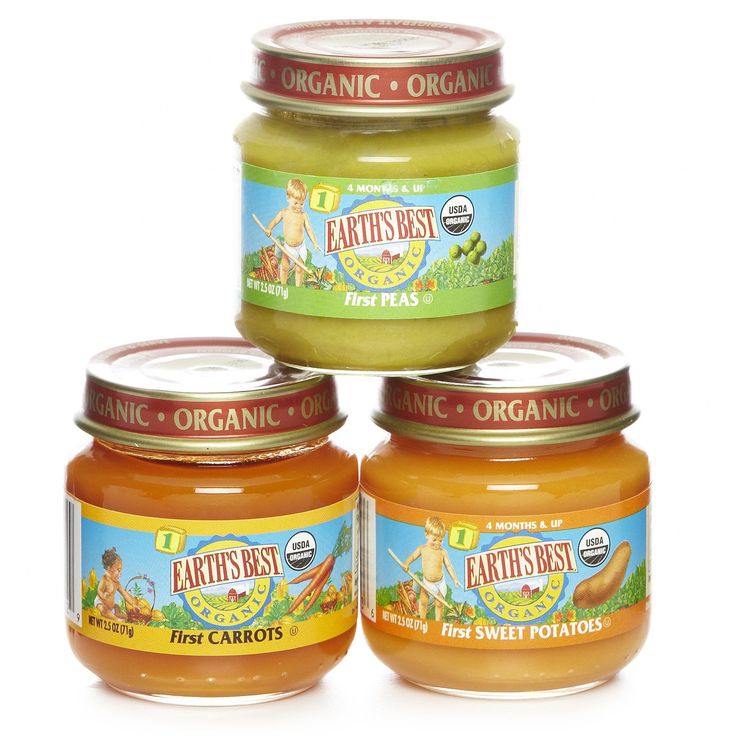
7
2,218.821 886.00 P
- 15%
Nutrilon Pepti Allergy mix 800 gr.
18
3,760.003 196.00 P
- 15%
Nutrilon Premium 3 milk drink 1200 gr.
5
2 211.761 880.00 P
- 15%
Nan Expert Pro lactose-free mixture 400 gr.
37
1,059.00 P
Nan Optipro 1 milk mixture 400 gr.
16
629.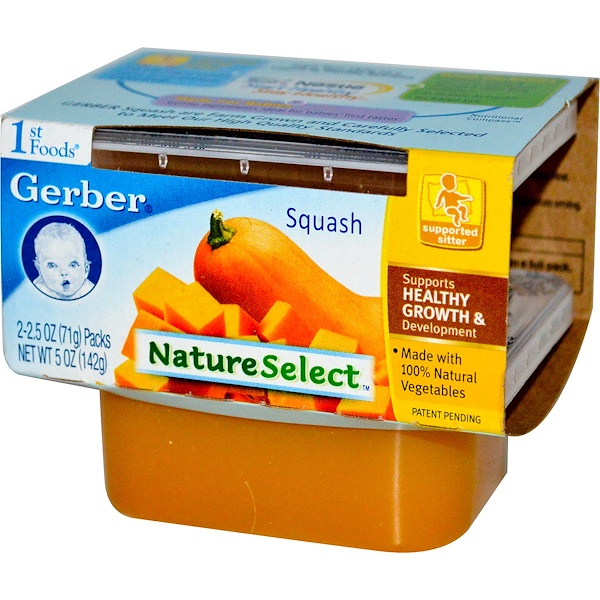 65 P
65 P
Nan 1 fermented milk mixture 400 gr.
17
768.00 P
Baby porridge oatmeal without milk 200 gr.
12
133.83120.45 P
- 10%
Nutrilon Premium 1 milk formula 600 gr.
10
964.71820.00 P
- 15%
Nan triple comfort mix 400 gr.
14
999.00 R
Baby rice porridge without milk 200 gr.
14
133.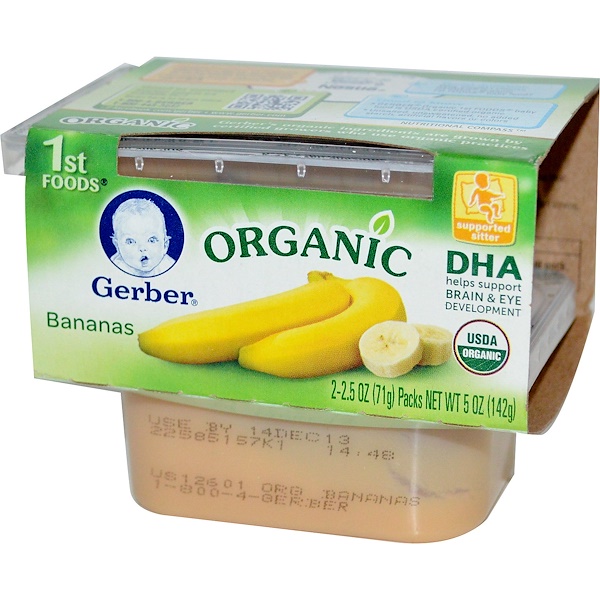 83120.45 P
83120.45 P
- 10%
Nan Expert Pro triple comfort blend 800 gr.
42
1465.00 P
Nan Expert Pro 3 hypoallergenic mixture 400 gr.
13
905.33679.00 R
- 25%
Nan anti-reflux milk formula 400 gr.
4
1,057.00 P
Gerber juice apple and carrot with pulp 175 ml/12 pcs.
29
172.71146.80 R
- 15%
Nutrilon Amino acids Syneo mix 400 gr.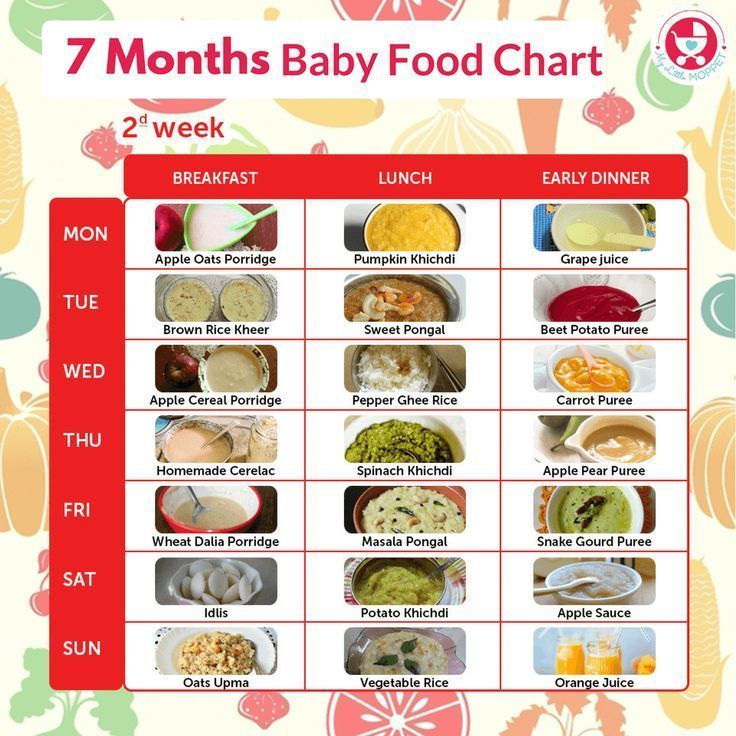
1
3,767.783 391.00 P
- 10%
Nutrilon 1 comfort mix 400 gr.
1
1 202.351 022.00 P
- 15%
Nutrilon 1 hypoallergenic mixture 400 gr.
6
1 312.351 115.50 P
- 15%
Gerber puree carrots 80 gr./6 pcs.
33
100.1190.10 P
- 10%
Gerber juice apple clarified 175 ml/12 pcs.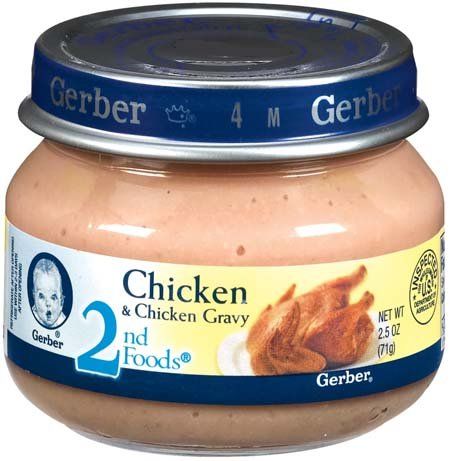
14
172.71146.80 P
- 15%
Gerber pear juice clarified 175 ml/12 pcs.
26
172.71146.80 P
- 15%
Baby 2 milk mixture 1200 gr.
13
1,280.591 088.50 P
- 15%
Gerber puree ripe mango 90 gr. Pouch / 16 pcs.
14
125.6062.80 P
- 50%
Gerber broccoli puree 80 gr.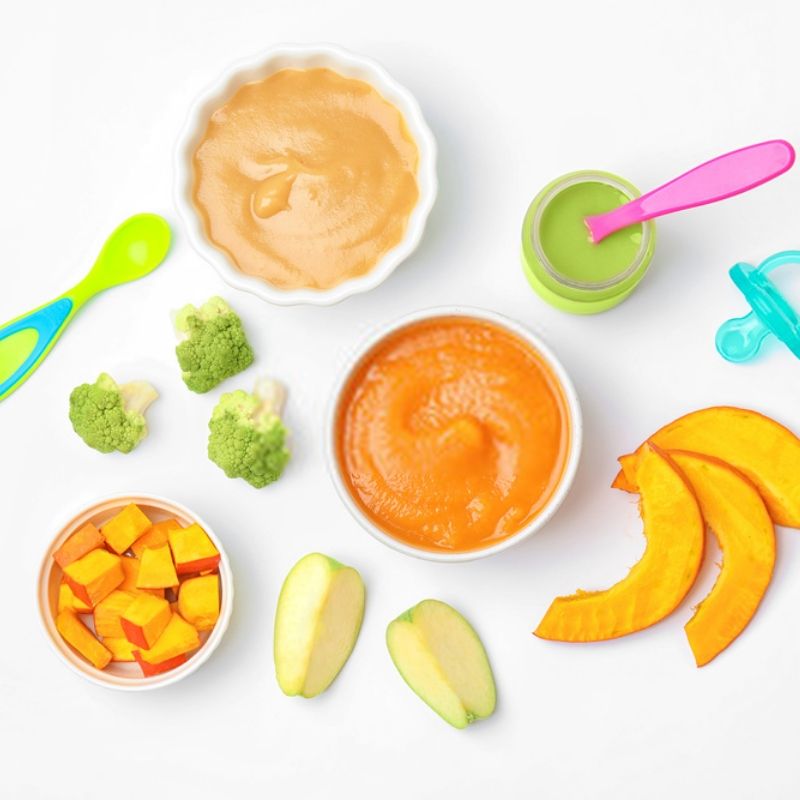 /6 pcs.
/6 pcs.
75
100.1190.10 R
- 10%
Nan 2 fermented milk mixture 400 gr.
17
807.50 P
Nutrilon Premium 2 milk formula 800 gr.
12
1,189.411,011.00 P
- 15%
Baby 1 milk mixture 600 gr.
8
682.35580.00 P
- 15%
Nan Expert Pro 1 hypoallergenic mixture 400 gr.
20
853.00 P
Nan Supreme milk mixture 400 gr.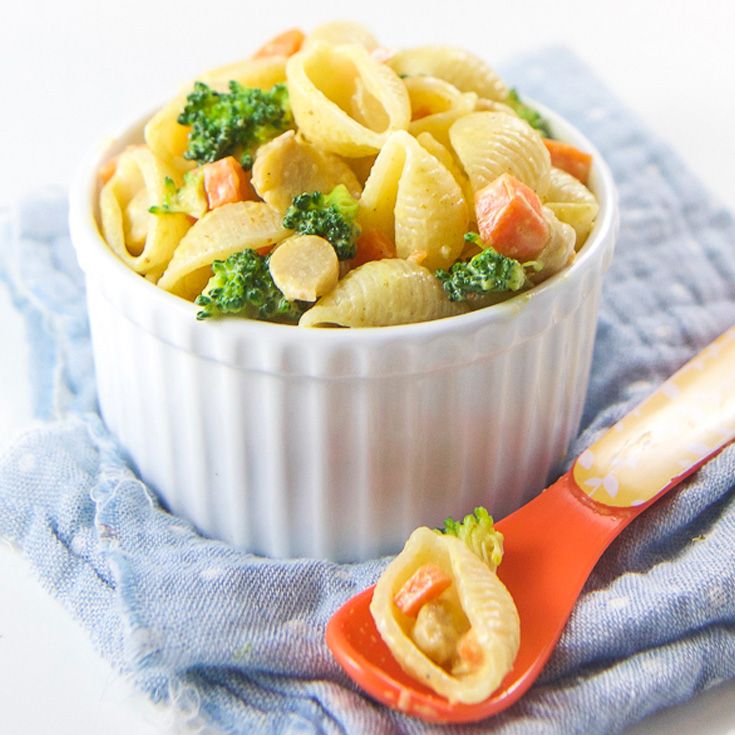
18
1258.10 P
Gerber puree rabbit 80 gr./6 pcs.
62
210.00178.50 P
- 15%
Nutrilon corn porridge without milk 180 gr.
15
276.94249.25 P
- 10%
Nutrilon porridge multi-cereal without milk 180 gr.
9
276.94249.25 P
- 10%
Nutrilon oatmeal porridge without milk 180 gr.
17
276.